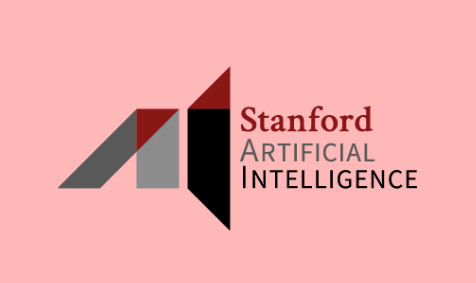Search engines scan the internet to find what you’re looking for, or what you don’t know you’re looking for. Social media platforms surface content you might want to read. And the latest iPhones recognize your face in a split second to unlock your phone.
As the artificial intelligence industry grows, the consequences of lacking a diverse workforce can pose major challenges that threaten to ripple into everyday life. Women and minorities are underrepresented in the AI workforce, according to a Stanford report on diversity in AI. More than 83% of AI tenure-track faculty at top universities are male, while over 46% of Ph.D. students in the United States studying AI are white.
This is the challenge that Stanford’s AI4ALL program was designed to address. The summer program, operated by Stanford Artificial Intelligence Laboratory, introduces the theory and application of AI to students, many from underrepresented backgrounds in AI, across the world.
“Having diverse teams of people that bring in different perspectives and that bring in understanding of different human populations or different groups of people really can only enrich the development of the technology,” said program director Juan Carlos Niebles.
The AI summer program targets ninth grade students who demonstrate mathematical maturity. According to Niebles, the goal of the program is to inspire students of diverse backgrounds to consider AI as a career option.
“We are looking for students that have a strong leadership potential, students that have the potential to really come to the field and become the future stars of AI technology,” Niebles said.
The program, which ran from June 28 to July 16, was entirely virtual because of the pandemic. Niebles and his team worked to preserve most, if not all, of the program and its academic engagement in the virtual setting.
The AI4ALL summer program originated from the Stanford Artificial Intelligence Laboratory’s Outreach Summer Program. In 2017, the program was rebranded with its new name. As of this year, it has expanded to 15 college campuses across the nation, including Princeton University, the University of Pennsylvania and Carnegie Mellon University.
Throughout the program, students attend lectures, engage in hands-on activities and gain skills in design and presentation. Program participants also work in teams of eight on AI projects spanning topics such as transportation, health, satellite imagery and analyzing tweets.
Joanna Liu, a 2017 AI4ALL alumnus, worked on a project programming autonomous cars.
“The whole goal of the project was essentially to aid in disabilities, like people with disabilities, and get from Point A to Point B without having a person at the wheel,” Liu said.
This year, 32 students participated from the U.S. and other countries. Although it was challenging to replicate the same sense of community, Niebles reported that the program became more accessible because students could attend from all around the world without having to travel.
Although the program lasts only three weeks each summer, Liu, like many other alumni of AI4ALL, has continued to pursue AI.
Along with her friends Anne Li and Taylor Fang, who also attended AI4ALL, Liu started Allgirlithm, a website providing a 20-week computer science and AI curriculum for free. According to Liu, the curriculum is being used to teach nearly 4,000 students.
“We have some amazing students who have succeeded in being successful in research very early on,” said program co-founder Rick Sommer. “We’ve had high school students do research projects that have won awards and gotten attention and have found their ways into top universities where they are continuing to work in AI.”
While most students’ access to AI is currently restricted to enrichment programs like AI4ALL, Sommer envisions the integration of AI education into the normal coursework at schools. But he said that it may take time for the school curriculum to evolve.
“There are many barriers to introducing a new curriculum and in schools,” Sommer said, explaining the difficulty of finding suitable teachers and integrating new curricula into what is already being taught in classrooms.
According to Sommer, as AI4ALL alumni are still young, the program’s effect on diversity in the AI workforce has yet to be realized.
“We want to make sure that when the technology evolves and it is applied to all these different domains,” Niebles said. “All humans have a voice of representation in the development of that technology, and we want to make sure that we get to that point.”
